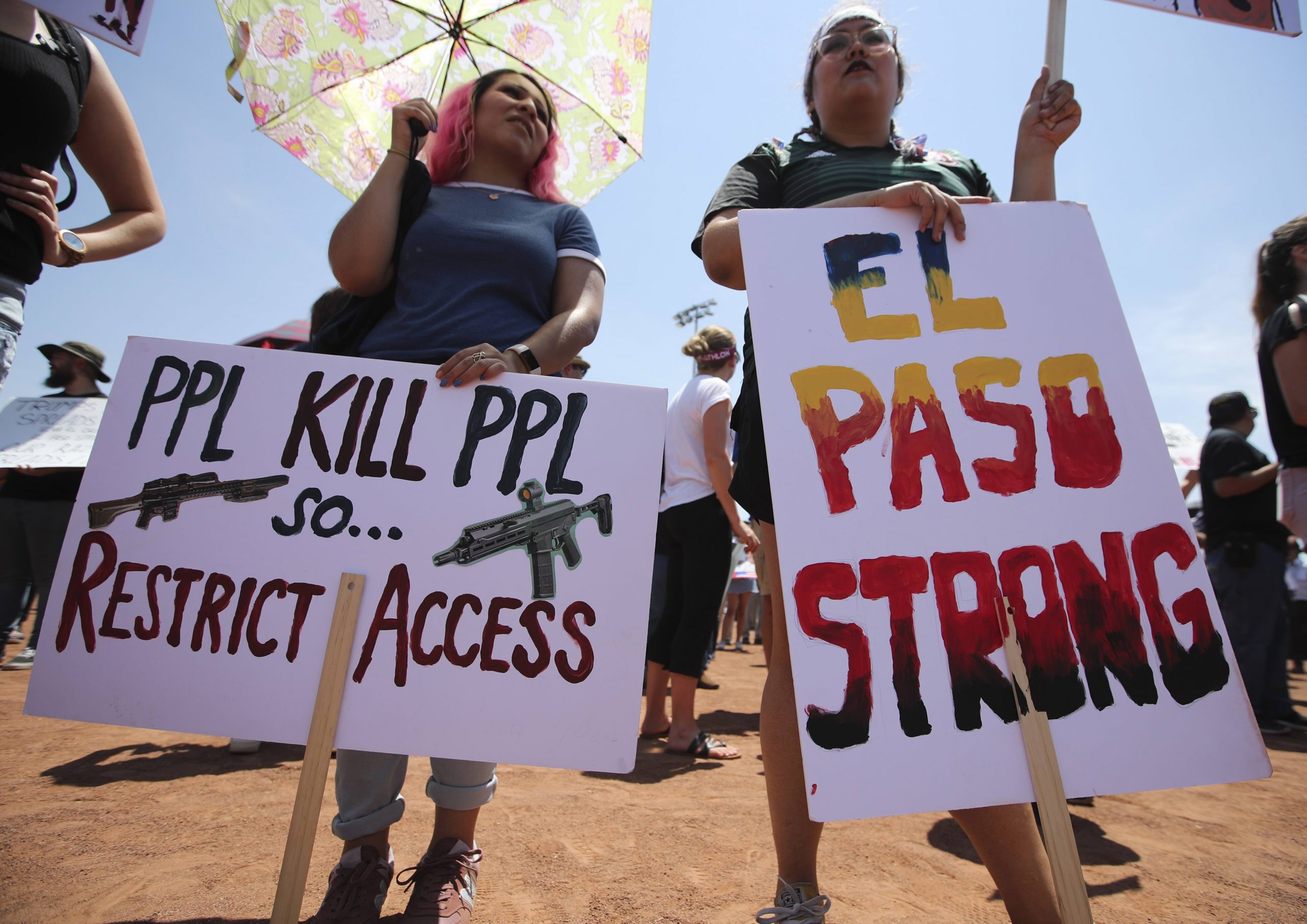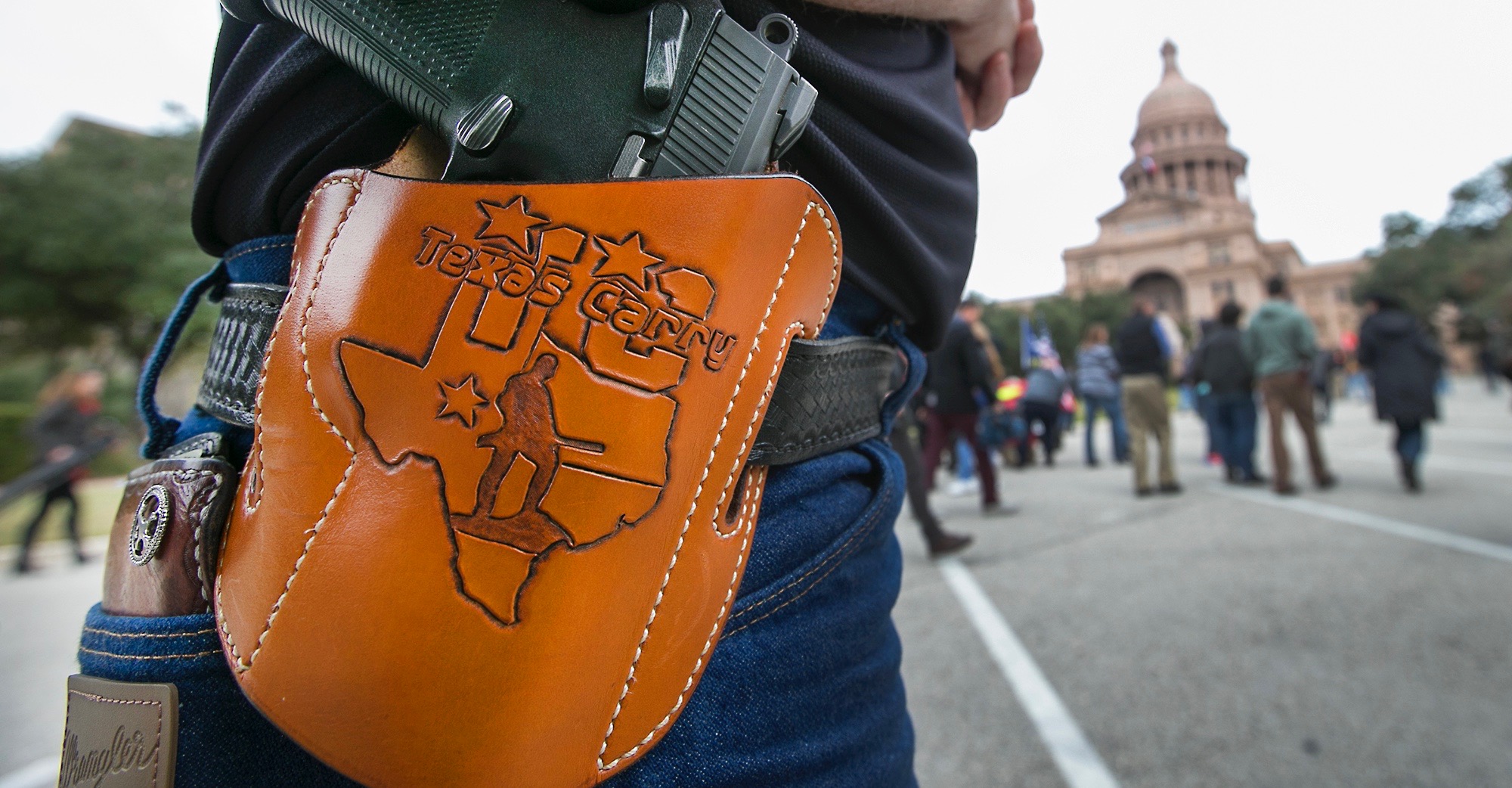In the wake of the El Paso and Dayton mass shootings, a number of Republican office holders nationwide have acknowledged popular outrage by signaling they may be willing to support some new gun reforms, including a federal background check bill and so-called red flag legislation that allows courts to seize legally owned guns from people who pose an imminent threat.
In Texas, however, the Republicans in charge of the state have made clear that tightening gun laws is not part of their plans. On August 8, Lieutenant Governor Dan Patrick told Fox News that a red flag bill has no chance in the state Senate.
“I have never supported these policies, nor has the majority of the Texas Senate,” he said. Republican Governor Greg Abbott likewise rebuffed calls to strengthen gun laws and concentrated much of his post-shooting policy agenda on mental health issues, which research says play a limited role in gun violence.
In their responses to El Paso, lawmakers like Patrick and Abbott are sticking to a familiar script. What their positions do not reflect is public opinion. Even in one of the most gun-friendly places in the country, surveys show that voters are much more receptive to firearm restrictions than the record of the GOP-led state Legislature suggests.
A February 2019 poll by the Texas Politics Project at the University of Texas found that 72 percent of Texans support a red flag law, with only 18 percent of respondents in opposition. The same pollsters found that 49 percent of respondents, a clear plurality, said “gun control laws” should be more strict, while 30 percent said they should be left the same, and 17 percent that they should be further relaxed.
In fact, according to the Texas Politics Project polling, support for stricter gun laws in the state has outpaced support for looser gun laws since at least February 2015. Among their findings in the intervening four years: A majority of Texans have favored universal background checks, and a plurality believe open carry will make them less safe.
But Texas politics is not a bipartisan game, according to James Henson, a University of Texas political scientist who directs the project, and that means the broad support for gun reform does not translate into legislation in a GOP-dominant state.
Drilling down into the survey results, he said that support for gun laws in the state is driven by overwhelming majorities of Texas Democrats who back stronger restrictions, and, on some questions, a slim majority of Republicans. But the Texas Republicans who consistently oppose tightening gun laws are particularly organized and mobilized. That matters in Texas, “where the decisive elections are Republican primaries,” not general elections, Henson said. As a result, “more mobilized, more conservative Republican primary voters have really strongly shaped the agenda of state leaders.”
With those political dynamics in mind, Texas politicians have more often than not enacted a pro-gun rights agenda, regardless of prevailing public sentiment. In 2015, the state legalized the open carry of handguns and expanded concealed carry to public college campuses. Starting September 1 this year, landlords in the state must allow tenants to keep guns in their homes. Texas also removed any permitting requirements for concealed carriers evacuating from natural disasters.
Past experience suggests that Texas legislators may be insulated from public opinion on the issue of gun policy, Henson said. The El Paso shooting “was one of the worst mass shootings Texas has ever seen, but it was by no means the first. Every time one of these incidents happens, people wonder if this will be some kind of a tipping point for Texas gun politics. But if you go by precedents of the recent past” — shootings at Fort Hood, Santa Fe High School, Luby’s Cafeteria, a Dallas Black Lives Matter rally, a church in Sutherland Springs — “you have to be skeptical that it’s going to happen.”


